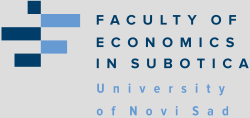THE IMPACT OF THE WAR IN UKRAINE ON THE POST-COVID SERBIAN LABOR MARKET
DOI:
https://doi.org/10.46541/978-86-7233-416-6_23Keywords:
labor market, Serbia, geopolitical instability, post-CovidAbstract
The first signs of recovery of the Serbian labor market from the impact of the economic crisis in 2008 have been waiting for more than 3 years. Despite the strength of the impact of the aforementioned crisis, the labor market of Serbia recorded positive trends after recovery, which were interrupted by the outbreak of the Covid-19 virus pandemic. The specificity of the crisis caused by the Covid-19 virus, since the crisis was caused by a non-economic factor, required a different approach to the situation and a different adjustment of the labor market and the economy as a whole. The measures taken with the purpose of protecting the health of the population caused the deterioration of the performance of the Serbian labor market and caused a decrease in the demand for labor, especially in the sectors of high-contact activities. The crisis had a different impact on different sectors of the labor market, and therefore on different socio-economic and demographic groups. Vulnerable categories of the population in the labor market, who were in a worse position even before the outbreak of the pandemic, felt the consequences of the crisis more than others. The exit from the crisis caused by the pandemic, instead of a peaceful period of recovery and strengthening of the impaired performance of the labor market, was replaced by the war in Ukraine. The world had faced the most intense economic turbulence since World War II. The period of macroeconomic instability caused by geopolitical turmoil and the rapid restructuring of energy systems, which we are witnessing, has a strong impact on the economies of the world, and therefore also on the labor markets and their actors. The purpose of this paper is to point out the challenges and risks facing the Serbian labor market in the period of recovery from the pandemic and the period of marked geopolitical instability caused by the current war in Ukraine. The paper stated how the Covid-19 crisis shaped the labor market of Serbia and what changes can be expected in the current and future years as a result of adjusting to the conditions of inflation growth, potential stagflation shock, difficulties in food production and supply, and rising prices of energy and mineral fertilizers.



